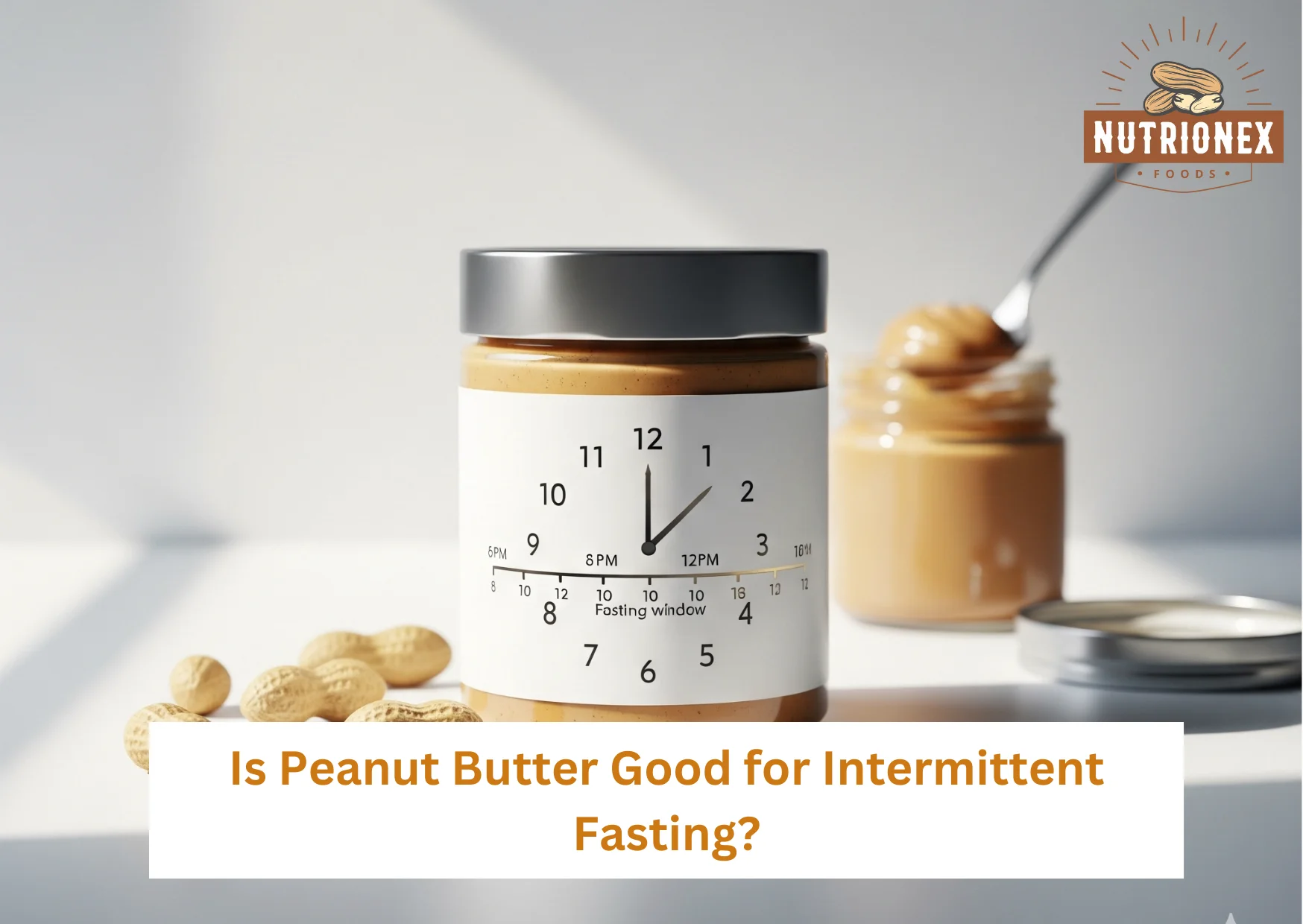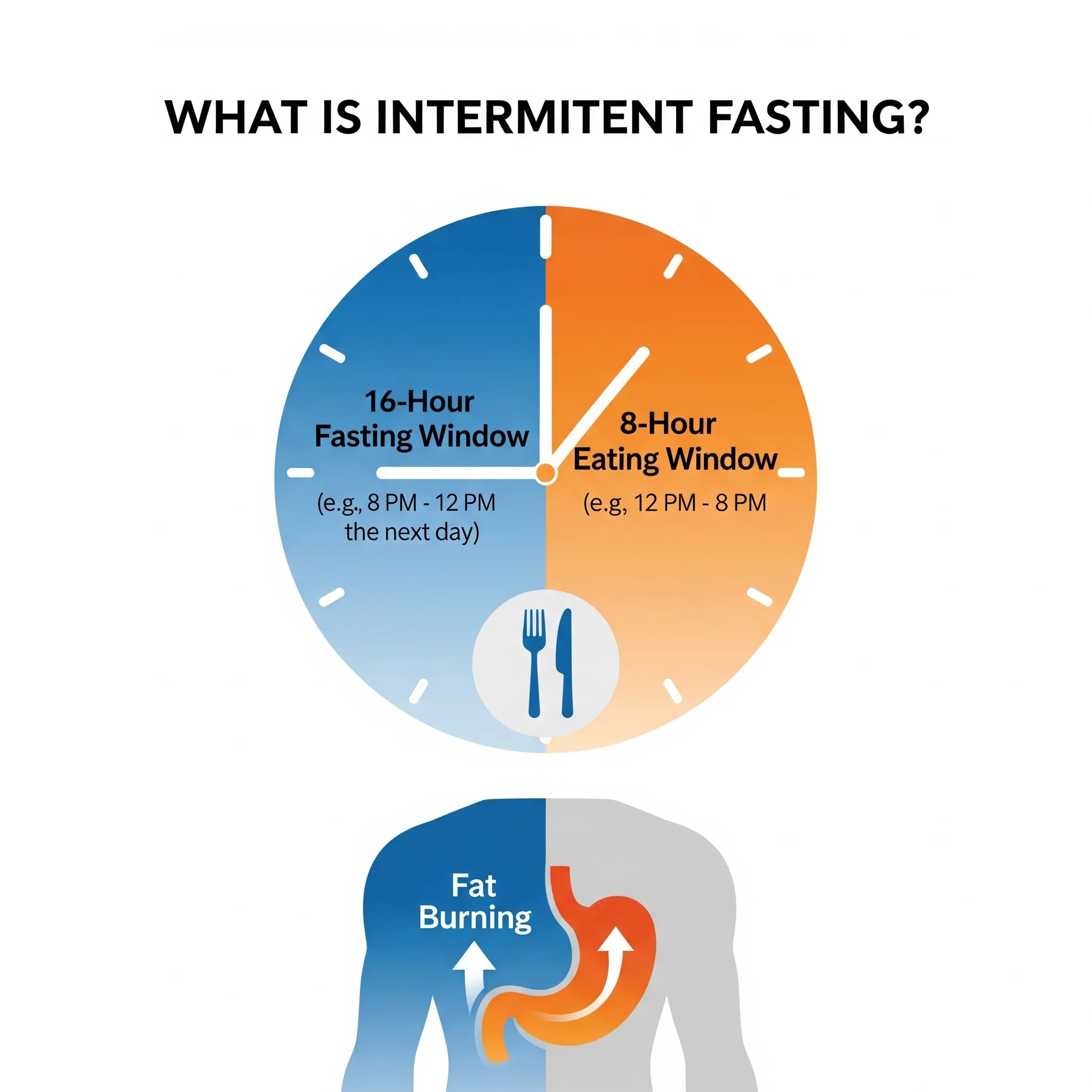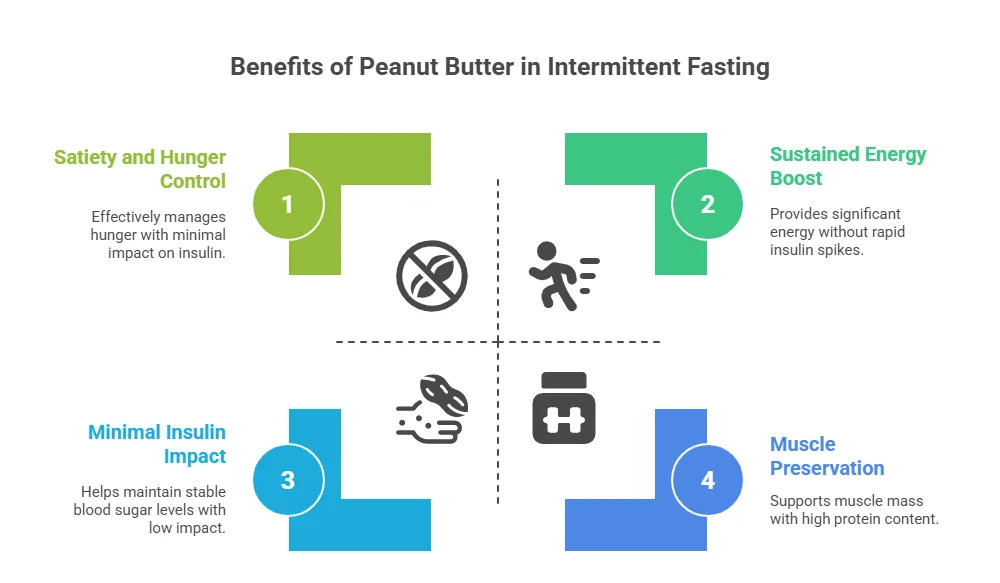
Is Peanut Butter Good For Intermittent Fasting
The intermittent fasting diet is incredibly popular these days as a weight loss and metabolic health promotion option. Still, as more individuals choose this diet, questions arise about what foods may be included in the fasting schedule. The question that often arises is whether a spoonful of creamy, satisfying peanut butter is good or bad for your fasting aspirations.
This blog will discuss why peanut butter and intermittent fasting are related to one another. We will review its nutritional composition, whether it is a fast-breaker and how you can tactically incorporate it into your routine. By the end, you'll understand the best practices for enjoying this popular nut butter without derailing your progress.
What is Intermittent Fasting?

Before we go further, it is important to define what intermittent fasting (IF) is. It is not a conventional diet but an eating program that alternates between feeding and fasting. It is not so much about what you eat but when you eat. Some of the shared goals are weight management, increased insulin sensitivity, and cell repair processes, such as autophagy.
There are several popular methods for intermittent fasting:
-
The 16/8 Method: This involves fasting for 16 hours each day and restricting your eating to an 8-hour window.
-
The 5:2 Diet: You eat normally for five days a week and significantly restrict calories on two non-consecutive days.
-
One Meal a Day (OMAD): This approach involves fasting for about 23 hours and eating all your daily calories in a single one-hour window.
It is also necessary to draw the distinction between “clean” and “modified” fasting. A clean fast implies intake of zero calories, i.e., water, black coffee, or plain tea. A modified or dirty fast permits a very small quantity of calories, mostly fat-based, to blunt hunger without circulating much insulin.
Nutritional Profile of Peanut Butter
To know how peanut butter fits into a fasting diet, we ought to examine what is inside of it. A common serving of natural peanut butter (approximately two tablespoons) is a high-powered combination of macronutrients. It contains a lot of healthy fats of the unsaturated sort (monounsaturated), contains a useful amount of plant-based protein, and is not high in carbohydrates.
Choosing the right type is key. Natural peanut butter, made from just peanuts and maybe a little salt, is your best option. Most of the brands found in stores are fortified with sugar and hydrogenated oils, and other ingredients that are not beneficial to your health needs. An organic peanut butter shuns the use of pesticides, whereas the high protein peanut butter can go an extra mile, providing additional support to maintain muscles.
Does Peanut Butter Break a Fast?
This is what comes to the minds of most people who practice intermittent fasting. The short answer is yes, technically, eating peanut butter will break a fast. All foods or beverages that have calories bring energy into the system and alert the body that you are not fasting any longer. A single tablespoon of peanut butter includes 90-100 calories, enough to disrupt an intermittent fast.
Nonetheless, there is more. Peanut butter can be a helpful strategic choice for those individuals who follow some form of a modified fasting diet. With no to minimal carbs and rich in fat and protein, it has very little effect on blood sugar and insulin levels. In other words, even though it ruins a clean fast, it is not necessarily a mitigation of all of the metabolic advantages that you are pursuing with fasting and especially if your primary goal is fasting for weight loss.
Benefits of Peanut Butter During Intermittent Fasting

Best peanut butter has various benefits when consumed in the right context in a regulated fasting regime or during your feeding period. It is an effective meal-replacing product that could be useful to anyone who implements an intermittent fasting schedule.
Satiety and Hunger Control
Peanut butter contains healthy fats and protein that are quite satiating. A teaspoon can also assist in keeping hunger cravings at bay, so you are more inclined to stay on a fasting schedule. This comes in handy when you are just beginning your intermittent fasting journey and the body is adapting.
Sustained Energy Boost
You may need a source of energy to replenish you during your period of exercise. Peanut butter is a recommended source of energy before exercising in a modified fast. The fats break down gradually to provide you with energy during your session without the rapid high and subsequent low that the high-carbohydrate snack contains.
Muscle Preservation
One of the risks is the loss of muscle during a prolonged fasting sequence because the body seeks energy sources. Peanut butter contains protein that aids in providing the amino acids required in maintaining lean muscle mass, which is essential in having a healthy metabolism. A high-protein peanut butter could be of special use.
Minimal Insulin Impact
Natural peanut butter leads to no major rise in insulin as opposed to sugary snacks. One of the major advantages of intermittent fasting is the stability of blood sugar levels, and low-glycemic index foods, such as peanut butter, will promote that effect and lessen incidences of cravings and energy lows.
How to Include Peanut Butter in Your Fasting Diet
-
Mind Your Portions: Moderation is the golden rule. Keep to one spoonful. It is highly debatable that one can not go overboard with this nut butter because it is a high-calorie food that will inevitably slow down the weight loss journey.
-
Timing is Everything: Peanut butter should be consumed either as a break from a fast or during your eating window. It delivers a prolonged flow of energy that enables you to eat food without any difficulties. In those taking part in modified fasting, a small amount prior to an exercise can also work.
-
Choose the Healthiest Peanut Butter: Those with reading eyes and take note! Choose a natural or organic peanut butter and avoid the ones with several ingredients in them, and just have peanuts on it. Do not use brands that contain sugars or palm oil, or hydrogenated oils. Peanut butter comes in crunchy peanut butter. The most important thing is the quality of the ingredients.
Choose Your Peanut Butter Flavour
This aspect is where Nutrionex Foods, as a reputable peanut butter manufacturer and supplier, is ahead. They have several varieties with creamy peanut butter, crunchy peanut butter, sugar-free and flavored peanut butter, among others, to cater to dietary requirements and taste buds. Nutrionex Foods prides itself on offering quality and natural ingredients as an option in ensuring a healthier diet for your fasting diet.
-
Pair It Wisely: When you eat your window, combine the peanut butter with healthy foods. Put it on apples, or combine it in a smoothie, or in oatmeal. Adding it to foods rich in fibre increases their satiety rates and gives a more balanced profile in terms of nutritional value.
Potential Drawbacks to Consider
Though this food type can serve as a good companion, there are also some possible pitfalls about it. It is prudent to know these to enable you to make the right choice. The greatest risk is that it has high calorie density. Eating out of unconsciousness is the easiest way to turn a healthy diet addition into an excess-calorie source.
Also, until you figure out your motive in fasting, which, admittedly, should be guided more by experimentation than rule (we fast because it works, not because we are expected to), if the main idea in fasting is to achieve the maximum autophagy level, then not a single calorie should be introduced to the organism during the fasting period, even such a nutrient-dense product as peanut butter. Finally, peanut allergies are prevalent and make sure that you can have an alternative such as cashew or almond butter.
Frequently Asked Questions
1. Can peanut butter help with weight loss during fasting?
Yes, it can. The protein and healthy fats in peanut butter promote fullness, which can help you control your overall calorie intake. By managing hunger, it makes sticking to your fasting for weight loss plan more sustainable.
2. Is peanut butter suitable for intermittent fasting for women?
Absolutely. The nutritional benefits, particularly the healthy fats and protein, are beneficial for everyone. Women may find it especially helpful for balancing hormones and maintaining energy levels during an intermittent fasting for women plan.
3. What’s the healthiest peanut butter for fasting?
The healthiest peanut butter is one that is natural or organic and contains only peanuts and perhaps a touch of salt. Look for brands that do not have added sugar or hydrogenated oils.
4. Can I eat chocolate peanut butter while fasting?
Most chocolate peanut butter varieties contain added sugar, which will spike your insulin and is not ideal for fasting. However, if you find a brand with no added sugar (sweetened with a natural, zero-calorie sweetener), it could be an option for a modified fast in strict moderation.
5. Does crunchy peanut butter have different benefits?
Crunchy peanut butter and smooth peanut butter have nearly identical nutritional profiles. The choice between them is simply a matter of personal preference.
The Final Verdict
So, is peanut butter good for intermittent fasting? The answer is qualified yes. It will break a clean fast but a small and controlled amount of high-quality, natural peanut butter can be a part of a modified fasting diet or a good way to break your fast. Its capacity to abate hunger, sustain energy and maintain muscles is leading to many fasters using it as a functional food.
The trick is to match its consumption with what you are intending to achieve with fasting. You may prioritize in autophagy and only do it during your eating window. A tablespoon will do the trick should you want a slight assistance in hunger. Listen to your body, select the appropriate product, and make this tasty food turn out to be healthy.
